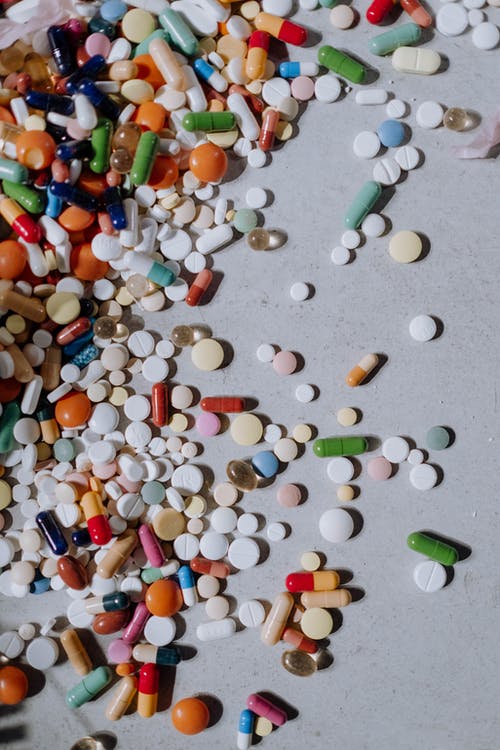You are here
Home 🌿 Marijuana Politics 🌿 Touesnard, Sutherland and Richardson: Canada's new minister of mental health and addictions can end the overdose crisis. Here's how 🌿Touesnard, Sutherland and Richardson: Canada's new minister of mental health and addictions can end the overdose crisis. Here's how

A legal, regulated approach would divert costs from the criminal justice system. Those savings could be used for community health and harm reduction.
It is distressing that the toxic drug poisoning deaths of more than 22,000 Canadians were not a bigger issue in the recent federal election, especially when government policy is a driving factor behind those preventable deaths. The newly created federal Ministry of Mental Health and Addictions must take steps toward securing the life, liberty and security of people who use drugs and ending the overdose crisis. The action needed from this new ministry is clear.
The overdose crisis has been fuelled by increased toxicity in the unregulated drug supply and the ongoing criminalization of people who use drugs. Coroners’ data from across the country tells us things have only gotten worse during the pandemic. British Columbia is on pace to record the highest-ever number of fatalities with similarly alarming trends across the prairies, Ontario and Atlantic Canada. Isolation, challenges to mental health, decreased service access and an unpredictably dangerous drug supply are all at play.
The number of deaths could — and should — be close to zero. These deaths are the end result of policy failures.
People often mistakenly believe that the illegality of drugs is a given, but it is a relatively recent stance, largely driven by colonialism, racism, classism and political expediency.
Our original drug prohibition laws began with the Opium Act in 1908, a response to anti-Asian sentiment and perceived threats from the opium trade that provided legal cover for the persecution of Asian people. The past century has seen subsequent restrictions surrounding the production, distribution and consumption of psychoactive drugs that are commonly motivated by racialized and class-based moral panics rather than the pharmacological properties of drugs.
Policy change should prioritize both decriminalization and legal regulation. Decriminalization measures must allow for the possession of sufficient quantities of currently illegal substances to protect all people who use drugs from the perils and inequities of criminalization. They must also effectively address the harm experienced by those already entangled in the criminal justice system. However, decriminalization alone will not address the catastrophically toxic and unregulated drug supply. Only the legalization and regulation of drugs will offer a safely regulated drug supply to all Canadians and reduce the unacceptable toll of drug overdoses. And any changes must centre on people who use drugs throughout the policymaking process.
The unacceptable burden of overdose on racialized and poor Canadians is even more egregious in comparison to the luxuries of safety around substances so many Canadians enjoy. The alcohol we drink is regulated, and if someone died from a poisonous substance being added to our alcohol supply, there would be a regulatory response. All substances should have those same safety mechanisms in place to protect the people who use them.
Drug use should be euphoric and safe, regulated with oversight on distribution, advertisement and labelling. A specific framework for each substance would protect youth, cut out organized crime, and provide ethical products that don’t rely on violent and destructive supply chains. Individuals who consume substances wouldn’t be criminalized for the possession, acquisition, procurement, sale or distribution of substances. A legal, regulated system would divert costs from the criminal justice system — which could be redirected to community-led responses to drug-related harm.
Cannabis legalization in 2018 has been one of the most significant policy achievements of this federal Liberal government. Worries about this change did not pan out: there was no increase in cannabis use in youth, nor in impaired driving and public disorder. We have learned that the sky did not fall.
Which brings us back to the most recent election and our newly created Ministry of Mental Health and Addictions. The new minister, Carolyn Bennett, must learn from the successes and challenges of cannabis legalization by acting — quickly — to overhaul our current approach to psychoactive drugs. Failure to enact drug policy reform will effectively sentence thousands more to entirely preventable deaths.
420 Intel is Your Source for Marijuana News
420 Intel Canada is your leading news source for the Canadian cannabis industry. Get the latest updates on Canadian cannabis stocks and developments on how Canada continues to be a major player in the worldwide recreational and medical cannabis industry.
420 Intel Canada is the Canadian Industry news outlet that will keep you updated on how these Canadian developments in recreational and medical marijuana will impact the country and the world. Our commitment is to bring you the most important cannabis news stories from across Canada every day of the week.
Marijuana industry news is a constant endeavor with new developments each day. For marijuana news across the True North, 420 Intel Canada promises to bring you quality, Canadian, cannabis industry news.
You can get 420 Intel news delivered directly to your inbox by signing up for our daily marijuana news, ensuring you’re always kept up to date on the ever-changing cannabis industry. To stay even better informed about marijuana legalization news follow us on Twitter, Facebook and LinkedIn.




